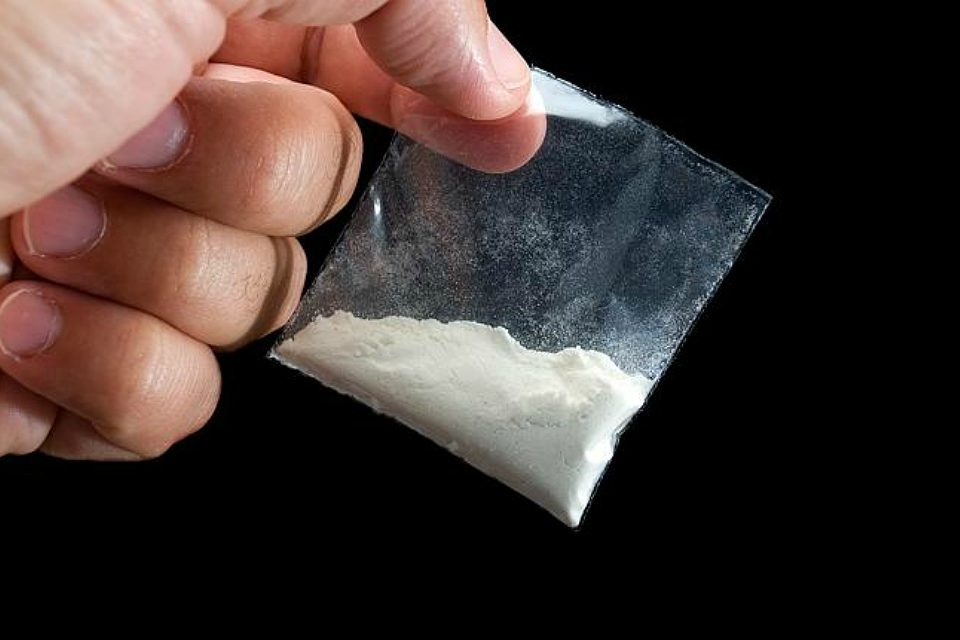Findings by the Health Research Board shows cocaine has overtaken opioids to become the most common problem drug.
A Health Research Board (HRB) report into drug treatment demand has found that 12,009 cases* were treated for problem drug use in 2022.
Almost four in ten of those cases were never treated before.
Cocaine was the most common drug reported, accounting for one in three cases.
This was followed by opioids (mainly heroin).
Cannabis was the third most common drug reported, followed by benzodiazepines.
Commenting on the key findings in the report, HRB Chief Executive, Dr Mairéad O’Driscoll, said:
“Our latest data provides insights into the patterns observed in drug treatment.
“Like last year, we are seeing an increase in cocaine as a problem drug.
“This year, it has surpassed opioids.
“The data we have collated will support practices in relation to treatment as well as underpinning action on preventative measures.”
Dr Anne Marie Carew, Research Officer at the HRB, said:
“There has been a considerable rise in the number seeking treatment for cocaine use in recent years.
“This is the result of the rise in use of cocaine as well as an increase in the provision of specific services to treat cocaine use.”
Different drugs generated varied treatment demand across age groups:
- Cannabis – 19 years of age or younger
- Cocaine – 20-34 year olds
- Opioids – over 35 year olds.
Cocaine findings
In 2022, powder cocaine accounted for almost eight in every ten treated cocaine cases, while two in ten were crack cocaine.
Powder
- For cases with powder cocaine as the main problem drug, nearly eight in ten were male and four in ten were employed
- Half of cases entering treatment for powder cocaine were 30 years or younger.
Crack
- Where crack cocaine was the main problem drug, four in ten were female, six in ten were male and less than one in ten were employed
- Half of the cases entering treatment for crack cocaine were 39 years or younger
- Crack cocaine cases resided mostly in Dublin, Kildare, Meath and Limerick.
Additional findings in relation to cases presenting for drug treatment reported by the HRB include:
Socio-demographic characteristics
- The median age of cases was 33 years
- Seven-in-ten (72%) cases were male
- One-in-seven (14%) cases were recorded as homeless
- The proportion of cases with an Irish Traveller ethnicity was 3%
- Almost three-in-five (59%) cases were recorded as unemployed
- One-in-five (22%) cases were in paid employment
- Of those with children aged 17 years or younger, two-in-five (40%) cases treated for problem drug use were residing with children
- Nearly seven in ten (69%) cases were treated in outpatient facilities.
Polydrug use (problem use of more than one drug)
- Polydrug use was common and was reported by over half of cases (57%)
- Cannabis (40%) was the most common additional drug, followed by alcohol (36%), cocaine (36%) and benzodiazepines (32%).
Key trends over a seven-year period
- Over the seven-year period from 2016 to 2022, the proportion of treatment demand attributable to opioids has decreased year-on-year. This went from almost five in ten cases in 2016 to three in ten in 2022
- The proportion of cases that were in paid employment doubled from one in ten in 2016 to two in ten in 2022
- From 2016 to 2022, there was a 259% increase in the number of cases where cocaine was the main problem drug
- There was a 16% decrease in the number of cases reporting that they had injected.
*It is important to note that each record in the National Drug Treatment Reporting System (NDTRS) database, where this data is drawn from, relates to a treatment episode (a case), and not to a person.
This means that the same person could be counted more than once in the same calendar year if they had more than one treatment episode in that year.
